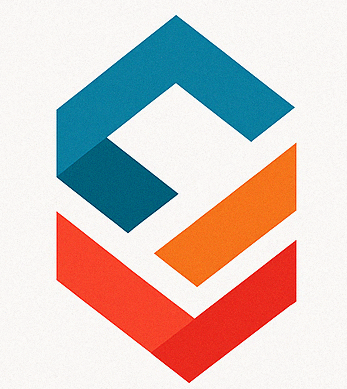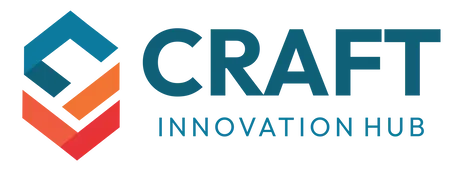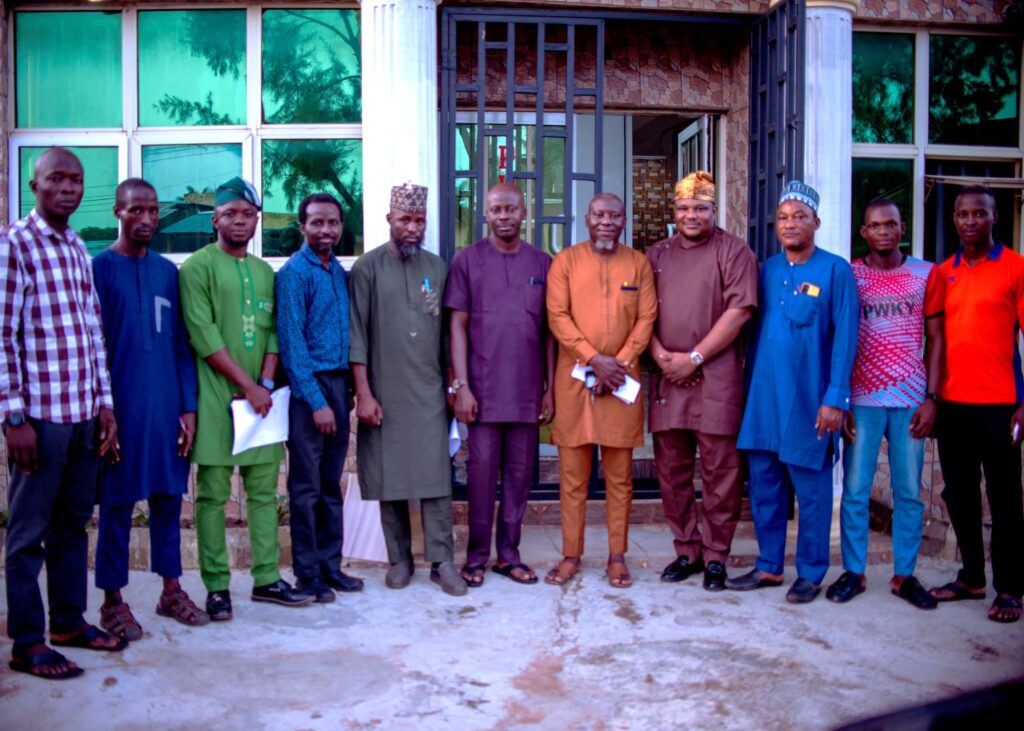Our Journalists interview Abdulrasaq Ahmed Abiodun, founder of Craft Innovation Hub, to unpack the bold vision at the heart of this pioneering project, where young people and underserved communities gain not just new skills but a renewed sense of hope and possibility, through a groundbreaking fusion of technology and practical learning.
Our Journalists: Thank you for joining us, Abdulrasaq. To begin, could you introduce yourself and share what inspired you to found Craft Innovation Hub?
Abdulrasaq Ahmed Abiodun: Thank you for the opportunity. My name is Abdulrasaq Ahmed Abiodun, and I am the founder of Craft Innovation Hub, an initiative very close to my heart. I am a doctoral candidate in Computer Science and have spent much of my professional life exploring how technology can solve real-world problems. My journey has been deeply influenced by my upbringing in Ilorin, witnessing both the brilliance and resilience of our youth, as well as the structural challenges that continue to hinder their progress.
The inspiration for Craft Innovation Hub was born out of a simple but powerful observation: Ilorin, Kwara State and Nigeria as a whole has an abundance of untapped potential. Despite the global momentum towards digitalisation and innovation, too many young people here still lack access to quality training, modern skills, and practical opportunities. I’ve seen first-hand the frustration of brilliant minds stifled by unemployment, underemployment, and skills mismatch. The Hub is my response, a platform to bridge those gaps, to ignite hope, and to help our community thrive in the digital age.
Our Journalists: What personal experiences or observations convinced you that this Hub is urgently needed in Ilorin and Kwara State?
Abdulrasaq: It’s a story I see echoed across many families, including my own. Growing up, I watched friends and relatives pursue higher education, only to find their ambitions hamstrung by a lack of local opportunities. Many migrated out of Ilorin or Nigeria entirely, not because they wanted to leave home, but because the ecosystem here couldn’t support their dreams. At the same time, artisans, women, and retirees found themselves sidelined by rapid technological change.
This reality crystallised for me when I worked on various tech and community projects. I witnessed graduates who excelled academically but struggled to earn a living because they lacked practical, employable skills. I met single mothers with entrepreneurial spirit but no digital literacy. I saw the gap between local trades like plumbing, crafts, and tailoring, and new tech-driven jobs that didn’t exist a decade ago.
I realised our approach to skills development needed to be holistic, hands-on, and deeply anchored in both community and technology. That conviction has shaped every aspect of Craft Innovation Hub.
Our Journalists: Many innovation centres focus either on technology or vocational training. How does Craft Innovation Hub’s integrated approach set it apart?
Abdulrasaq: That’s an excellent question. What truly distinguishes Craft Innovation Hub is our commitment to integration and inclusivity. In most cases, tech hubs are designed for software developers or startups, while vocational centres focus on trades like carpentry, plumbing, or tailoring. Rarely do these worlds meet. Yet, the future of work especially in Africa demands both digital fluency and practical craftsmanship.
Our Hub is structured around three core arms: the Tech & Vocational Centre, the NGO/community development arm, and a dynamic Media/Podcast platform. Each operates independently but is intentionally designed to complement the others. Our curriculum ensures a young person can learn artificial intelligence or web design alongside practical courses like plumbing or creative design and, crucially, be mentored in entrepreneurship, freelancing, and effective communication.
This ecosystem means someone can move from learning a skill, to building a portfolio, to getting real freelance work, or even launching a small business, all within the same environment. It’s about creating not just job seekers, but job creators and community leaders.
Our Journalists: Can you describe how these three arms work together to amplify impact?
Abdulrasaq: Absolutely. The Tech & Vocational Centre is our engine room, where practical and digital skills are taught through hands-on, project-based learning. The NGO arm focuses on outreach, health advocacy, scholarships, and digital inclusion, ensuring even the most underserved members of our community can access life-changing opportunities. Our Media/Podcast platform gives a voice to learners, spotlights local innovation, and cultivates digital storytelling skills, empowering participants to shape the narrative of their own success.
Imagine a scenario: a young woman from Baruten enrolls in our web design course through a sponsored NGO slot. She gains digital skills, builds confidence through our communication workshops, and then shares her journey on one of our youth-led podcasts. Her story inspires others, attracts mentors, and creates a ripple effect of hope and aspiration.
Our Journalists: Let’s talk about the local context. What are the biggest challenges young people face in Kwara State regarding employment, skills, and economic opportunities?
Abdulrasaq: The most pressing issues are skills mismatch, chronic underemployment, and lack of access to quality mentorship and resources. Many graduates have theoretical knowledge but limited exposure to practical problem-solving, industry tools, or real-world projects. Traditional trades, meanwhile, are often seen as less prestigious, and there’s a stigma attached to pursuing vocational paths, even though these are critical to our economy.
There’s also the challenge of digital exclusion, many talented youths, especially women and those from low-income backgrounds, simply do not have the infrastructure or support to engage with emerging opportunities. Entrepreneurship is another hurdle; while there is plenty of ambition, there’s a shortage of incubation, business skills, and access to markets.
Our Journalists: How does Craft Innovation Hub specifically address these challenges?
Abdulrasaq: Our approach is multi-layered. First, we offer a portfolio of relevant, future-oriented courses: from Embedded System Development and Data Science to Digital Marketing, UI/UX, Creative Writing, Plumbing, and more. Each course is mapped to real market needs and includes embedded modules on entrepreneurship, freelance mastery, and communication.
Second, our sponsorship and outreach programmes target the most vulnerable: women, widows, single mothers, retirees, and school leavers. We believe no talent should be left behind. Our facilities are intentionally designed for accessibility, and we actively recruit trainers and mentors who represent the diversity of our community.
Finally, by fusing practical projects, industry partnerships, and media engagement, we make learning visible and valued. Our aim is to turn every participant into a confident problem-solver who can earn, innovate, and lead.
Our Journalists: Why is it important to combine cutting-edge tech courses with traditional vocational skills?
Abdulrasaq: The answer is two-fold. First, the 21st-century economy doesn’t fit into old boxes. A plumber today who understands IoT (Internet of Things) can install smart home systems; a tailor who knows digital marketing can build a thriving online business. The world is increasingly hybrid, and so must our skills be.
Second, we must elevate the value of craftsmanship. Not everyone will become a software engineer, and that’s okay. But everyone should have access to the tools, networks, and mindset needed to thrive, whether their passion is in AI or artisan crafts. By offering both, we not only bridge skill gaps but also break social barriers and redefine what it means to be ‘skilled’ in modern Nigeria.
Our Journalists: Who are the primary beneficiaries of the Hub’s programmes, and how do you ensure inclusion of women, retirees, and those with limited means?
Abdulrasaq: Our target groups include youths aged 16–35, women (especially single mothers and widows), NYSC members, recent graduates, retirees seeking to re-enter the workforce, and artisans wishing to upskill. We are especially focused on those who have traditionally been excluded from digital opportunities due to financial, educational, or social barriers.
Inclusion is not a buzzword for us; it is the DNA of our programming. We offer sponsored places and need-based discounts, partner with NGOs to identify high-potential but under-resourced learners, and provide a safe, welcoming space for everyone, regardless of background.
Our Journalists: And the NGO arm, what is its role in outreach, health, and digital literacy?
Abdulrasaq: The NGO/community arm is our social engine. It leads initiatives such as free and subsidised health screenings, digital literacy drives in schools, anti-exploitation advocacy, and mentorship schemes. It also manages partnerships with local NGOs, government agencies, and health providers to ensure our impact reaches deep into the community.
Through regular outreach and seminars, we are able to touch lives beyond the classroom. The goal is to make sure every intervention, whether a health campaign or a digital skills bootcamp, creates sustainable, measurable improvement in wellbeing and opportunity.
Our Journalists: Craft Innovation Hub emphasises hands-on, project-based learning with entrepreneurship and freelance mastery. How does this prepare participants for real-world earning and impact?
Abdulrasaq: The traditional “chalk and talk” method simply doesn’t work anymore. At Craft Innovation Hub, every course is anchored in real-world projects, practical labs, and portfolio development. For example, our web development learners will not only build sites but also deploy them, pitch to real clients, and learn how to manage projects. Vocational trainees, whether in plumbing or creative design, will work on live briefs, collaborate in teams, and present solutions to local problems.
Freelance mastery and entrepreneurship are woven throughout. Participants learn how to create digital portfolios, price their services, write proposals, and communicate with clients, skills critical for success in today’s gig economy.
Our Journalists: What outcomes do you foresee for your graduates in the first year post-training?
Abdulrasaq: Within six to twelve months, I expect our graduates to be confidently bidding for freelance jobs online, launching side businesses, or securing better employment. For some, it will mean becoming the first in their family to earn a digital income; for others, it may be leading a community project or training others in their neighbourhood.
Most importantly, I hope they will see themselves differently, not as passive recipients of aid, but as creators of value, leaders, and catalysts for change.
Our Journalists: How crucial are partnerships with government, educational institutions, and the private sector for Craft Innovation Hub’s sustainability?
Abdulrasaq: Partnerships are absolutely essential. No single entity can drive systemic change alone. We are actively forging alliances with local and state government for policy support and outreach, with universities for curriculum development and research, and with private sector players for mentorship, sponsorship, and job placement.
Sustainability also depends on a blended funding model, course fees, grants, sponsorships, and in-kind contributions. By diversifying our revenue streams and constantly seeking collaborative opportunities, we can ensure the Hub is both impactful and resilient.
Our Journalists: What is your vision for collaborations that amplify the Hub’s reach?
Abdulrasaq: I see Craft Innovation Hub as a model that can be replicated across Nigeria and Africa. By working with like-minded organisations, educational partners, and international donors, we can share knowledge, exchange trainers, and scale our impact far beyond Kwara State. Ultimately, my dream is to spark a network of innovation hubs, each rooted in its local context but united by a shared mission: to craft futures, one innovation at a time.
Our Journalists: How do you see the Hub contributing to the economic transformation of Kwara State and Nigeria?
Abdulrasaq: By directly addressing youth unemployment, skills mismatch, and the digital divide, we are laying the groundwork for sustainable economic growth. As more young people gain relevant skills, launch businesses, and enter the workforce, we’ll see increased productivity, household incomes, and community wellbeing.
At a societal level, the Hub fosters a culture of innovation, resilience, and lifelong learning. It gives people permission to dream bigger, to see themselves as agents of change, and to contribute meaningfully to the nation’s development.
Our Journalists: And in terms of nurturing a broader culture of innovation and inclusion?
Abdulrasaq: We are committed to breaking down the barriers that separate technology from tradition, and inclusion from excellence. By celebrating all forms of skill, digital or vocational, academic or practical, we redefine what it means to be ‘successful’ in Nigeria. This inclusivity, I believe, is our greatest innovation.
Our Journalists: What have been the biggest challenges in establishing the Hub, and what lessons might you share with others pursuing social impact projects?
Abdulrasaq: The greatest challenge has been balancing ambition with resources. Renovating facilities, designing curricula, and recruiting trainers before generating revenue is always daunting. Convincing stakeholders of our vision, especially for an integrated, cross-sectoral model takes persistence.
However, I’ve learned that clarity of vision, transparent communication, and an unwavering focus on community needs build credibility over time. Don’t be afraid to start small, iterate, and seek feedback. The most meaningful innovations are often those born out of genuine dialogue with those you hope to serve.
Our Journalists: Why should businesses, public officers, educators, and individuals get involved with Craft Innovation Hub?
Abdulrasaq: Because this is not just about one organisation; it’s about building a brighter, more inclusive future for all. Every business benefits from a more skilled workforce. Educators gain new pathways to engage and empower students. Public officers see tangible progress in youth development and employment. Individuals find community, mentorship, and inspiration.
Our doors are open to mentors, trainers, donors, corporate partners, volunteers, and anyone with a passion for making a difference. By supporting Craft Innovation Hub, you invest not only in our youth, but in the long-term prosperity and stability of Kwara State and Nigeria.
Our Journalists: How can people and organisations get involved?
Abdulrasaq: There are many ways: sponsor a student, mentor a cohort, provide internship opportunities, contribute resources, or simply spread the word. Visit our website (www.cih.ng), email us at [email protected], or call our office. We welcome ideas, partnerships, and any form of positive engagement.
Our Journalists: What is your long-term vision for Craft Innovation Hub? How do you hope it will shape future generations in Kwara and Nigeria?
Abdulrasaq: My long-term vision is for the Hub to serve as a springboard for thousands of empowered youths, women, and community leaders, each equipped not just with skills, but with the confidence to create, adapt, and lead. I see a future where Ilorin is celebrated not for the talents it exports, but for the innovations and enterprises it nurtures at home.
The ripple effect will be felt for generations: a culture of lifelong learning, resilient entrepreneurship, and civic engagement that transforms families, neighbourhoods, and ultimately, the nation.
Our Journalists: And finally, what message do you want to send to young Nigerians aspiring to build better futures for themselves?
Abdulrasaq: You are more powerful than you know. Don’t let circumstances define your limits. The tools, the knowledge, and the opportunities are coming closer to your doorstep than ever before. Embrace learning, seek out mentors, and have the courage to start, even if you’re unsure where it will lead. At Craft Innovation Hub, we are here to walk the journey with you, crafting futures, one innovation, one dream, one life at a time.
Our Journalists: Thank you, Mr Abdulrasaq. Your vision and passion are truly inspiring. We look forward to seeing the transformative impact of Craft Innovation Hub on Kwara State and beyond.



